Ankara, 16 Rabi’ul Awwal 1437/27 December 2015 (MINA) – Economists forecast that the economy of the area of Syria governed by the Assad regime, already in a disastrous state, will worsen in 2016.
“The area controlled by the Assad regime [about half of the entire country] has seen food subsidies slashed, wages left unpaid, an ever more erratic electricity grid, failing trade and fuel distribution, a rapidly depreciating currency, as well as growing discontent in government-controlled areas — which has sent shockwaves throughout the country,” according to a report by the Carnegie Endowment for International Peace on Wednesday, Mi’raj Islamic News Agency (MINA) reported, quoting Anadolu Agency.
“Year 2016 will see Syrians poorer, living a more miserable life, and emigrating in higher numbers,” the report said.
“Business sectors that had survived relatively well until now, such as agricultural production, had a dismal year. The fragmentation of the country has increased transport costs to such an extent that importing wheat from the Black Sea is now cheaper than buying it from Hasakah [in northeastern Syria] and carrying it to Damascus,” the report said.
Also Read: Saudi Arabia Wins Bid to Host World Expo 2030
If the war goes on, all of these destructive factors will accelerate, according to the report.
The GDP for the Assad regime half of Syria is expected to decline by nearly minus 16 percent in 2016, according to a World Bank forecast in November.
It is estimated to have contracted by an average of minus 15.4 percent for the period 2011 to 2014, the bank said.
“The institutional integrity of the government in Damascus has been eroded,” commented David Butter, an economist and the author of a Chatham House study published on June 30. A war economy has emerged in which belligerent factions have established autonomous economic spheres, and in which the role of international aid in sustaining the population has assumed increasing importance.”
Also Read: 148 Products from Indonesia Promoted at Sarawat Superstore Jeddah
The conflict has pervaded all aspects of the economy, Butter wrote. “Agriculture has assumed a dominant position in overall production as other sectors have been devastated, but farm output has also been severely affected. Meanwhile, oil production under state control has dwindled from 387,000 barrels per day (b/d) to less than 10,000 b/d, depriving the government of one of its main sources of revenue.”
The economic disaster has forced millions of Syrians into poverty. Almost three million Syrians lost their jobs during the conflict, and more than 12 million people lost their primary source of income, according to statistics from the UN-supported Syrian Center for Policy Research in March 2015.
Unemployment rose to 57.7 percent, up from 14.9 percent in 2011, the center statistics showed.
About 11 million Syrians are either displaced or seeking refuge elsewhere, according to Butter.
Also Read: Packaging Industry Supports Halal Ecosystem
Syria’s total economic loss since the start of the conflict equaled $202 billion by the end of 2014, equivalent to 383 percent of the 2010 GDP, according to a report published by the Syrian Center for Policy Research in November 2015.
“Fundamentally, the Syrian economy suffers from several curses: the destruction of the country’s physical infrastructure and productive capacity; the outflow of financial and human capital; the fragmentation of the territory and the disruption of trade and other business networks; the collapse of state institutions and services in areas outside regime control; and Western sanctions,” the Carnegie report said.
The government has been able, despite low fiscal revenues, to pay salaries and maintain the functioning of basic services. This, however, was due to the implementation of new taxes, the reduction of subsidies on essential goods such as heating oil and bread, the report said.
“This has been, however, at the expense of the population, an overwhelming number of which now live under the poverty line,” the report continues. “Electricity blackouts and shortages of oil products in the market have increased, which will only push inflation higher in the coming weeks.”
Also Read: Indonesia-Japan Agree on Energy Transition Cooperation
Inflation is forecast to increase by nearly 30 percent in 2015, after increasing by nearly 90 percent in 2013, the World Bank said. The sharp depreciation of the Syrian pound has fueled inflation, according to the bank.
The result for those Syrians living in the Assad regime-controlled area: Life expectancy at birth has fallen to 55.7 years in 2015 from 75.9 years in 2010, the Chatham House report said.
“Meanwhile, foreign nations penetrate ever deeper into the Syrian economy. Despite the war, or perhaps because of it, the Syrian north is growing more integrated with the Turkish economy, while Iran is emerging as a major financial stakeholder in the Syrian government,” the report concluded. (T/P010/R07)
Mi’raj Islamic News Agency (MINA)
Also Read: Dubai Expo 2020 Holds Special Event for Palestine





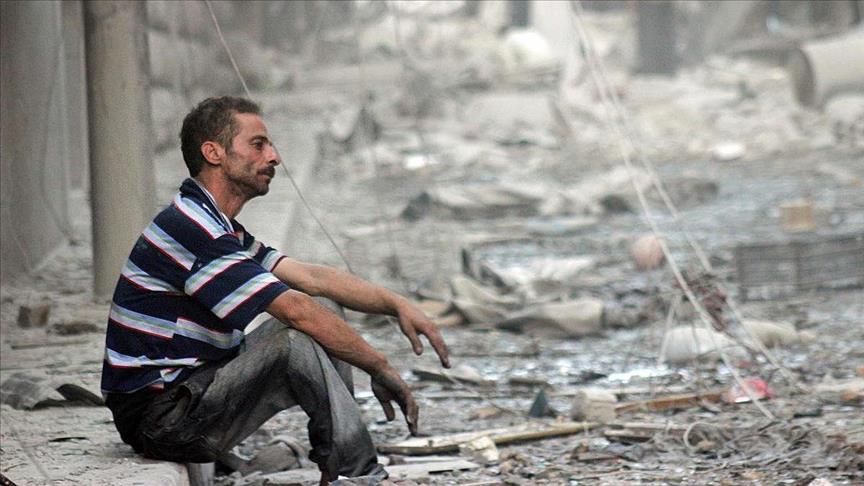





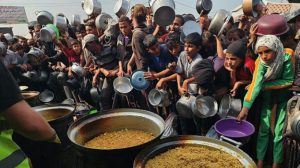


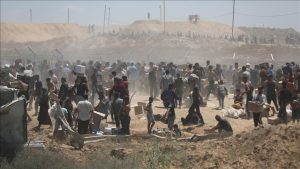


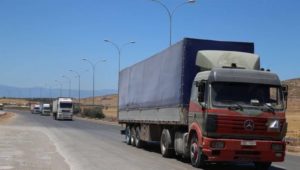
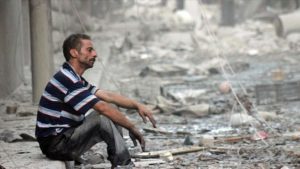
















 Mina Indonesia
Mina Indonesia Mina Arabic
Mina Arabic